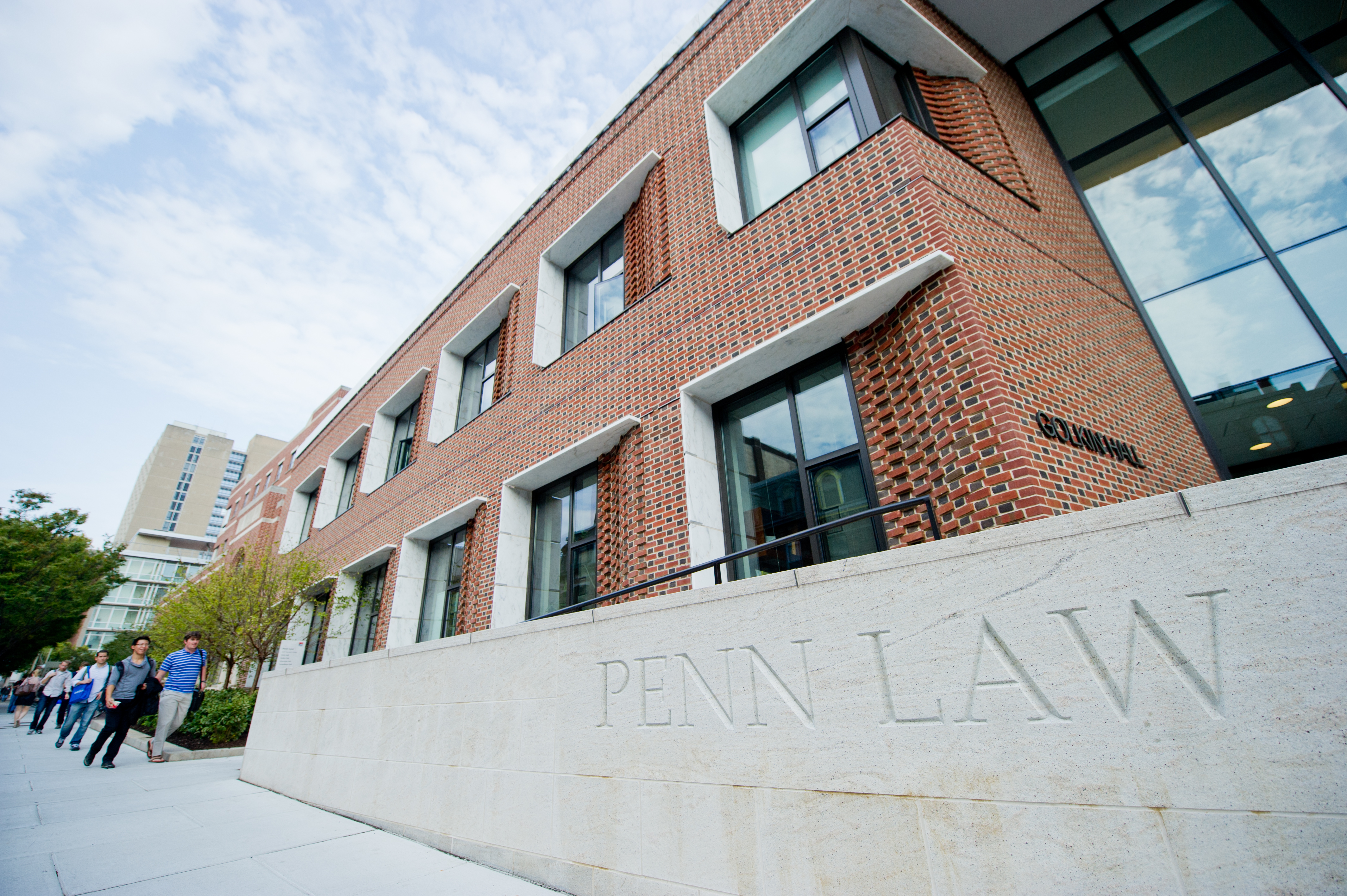
Two essays by student winners of a Penn Law essay competition describe important regulatory developments.
This past spring, The Regulatory Review worked with University of Pennsylvania Law School Professor Sophia Lee to host an essay competition for students enrolled in her Administrative Law course. Each student in her class researched a federal rulemaking or proposal and then wrote an essay about it. The top 11 essays selected by the class were then submitted to The Regulatory Review, and our editorial team then further selected the two best essays to publish.
We are pleased to announce that the 2019 winning essays were authored by Mary Felder and Asal Yunusov, both members of the University of Pennsylvania Law School class of 2021. Their essays appear below, in alphabetical order by each author’s last name. We extend to Mary and Asal our sincerest congratulations—as we also congratulate and thank all the students whose excellent essays we read. We especially thank and applaud Professor Lee for her innovative and insightful teaching of Administrative Law.
* * *
The Importance of Public Comments in Agency Rulemaking Decisions
Mary Felder
After backlash, the FNS abandoned a regulation that would reform food assistance for group living centers.
How do federal agencies balance state efficiency concerns with providing benefits for vulnerable citizens?
After advocates for low-income Americans pointed out deficiencies in the federal program that provides food support to those in need of assistance, the Food and Nutrition Service (FNS) attempted to restructure its benefits program to improve access to beneficiaries with disabilities or drug addiction who are living in treatment centers. Because of state backlash, FNS ultimately abandoned these changes.
Formerly known as the Food Stamp Program, the Supplemental Nutrition Assistance Program (SNAP) is the largest program in the federal government’s domestic hunger safety net. Operated out of the FNS, an arm of the U.S. Department of Agriculture, SNAP provided benefits to more than 40 million Americans last year. Nearly two-thirds of participants come from families with children—one in six children in the United States received SNAP benefits in recent years. Currently, SNAP gives recipients a debit card that can be used to buy food.
SNAP benefits have also been available to individuals living in drug and alcohol treatment centers and group living arrangements since a major overhaul to food stamps in 1974. Unlike individuals living in households, who receive their own debit cards, residents of these facilities may receive their benefits through the institution.
The FNS published a proposed rule in 2011 that would make minor changes to the way that these centers manage benefits. The proposed rule did not make any changes to the rights of residents in these centers who were eligible for benefits.
The proposed rule received a total of 118 comments, nearly all from advocacy groups, food banks, and non-profits. One such advocacy group, Community Legal Services of Philadelphia (CLS), submitted a 45-page comment addressing the regulation in detail, and pointing out two notable deficiencies in the rights of impoverished residents of group-living facilities or drug and alcohol treatment centers.
First, the proposed rule required that residents who leave their center before the 16th of the month receive back up to half of their SNAP allotment, but the agency has discretion to keep the allotment when residents leave on or after the 16th. CLS insisted that residents must receive all remaining benefits, regardless of when they leave the institution.
Second, the proposed rule did not require the facilities to give departing residents change forms, which alert government officials that the resident will require benefits at a different address. CLS pointed out state agencies can mandate that residents receive benefits through the facility, giving the facility sole control over the resident’s application. Consequently, upon leaving, residents may have no understanding of how to maintain their SNAP benefits. Because SNAP-eligible residents in facilities can be blind, disabled, or coping with addiction, CLS noted that they are particularly vulnerable and may not be capable of navigating SNAP requirements alone. CLS recommended that the regulation require facilities to submit a change form on behalf of the resident and give that resident any information required to continue receiving SNAP.
In response to substantive comments like the one submitted by CLS, FNS issued a new interim final rule in January 2017. In direct response to commenters’ concerns, the interim rule required that a prorated amount of SNAP benefits be returned to residents leaving these facilities even after the 16th. It also required that centers provide the resident with a change form and notify the state agency of any changes that SNAP requires be reported, including a new address.
In making these changes, the agency decided against first issuing a notice of proposed rulemaking so as to ensure that benefits could be returned to vulnerable program participants as soon as possible. It did, however, invite additional comments on the changes announced in its interim final rule.
The agency reported that, of the five comments submitted in response to the interim final rule, four were adverse comments from state agencies laying out logistical difficulties with implementing the new requirements. FNS acknowledged that its interim final rule, as written, would cause an undue hardship on these facilities, and thus in February of this year it chose to issue a final rule which abandoned the substantive changes contained in the interim rule. The agency plans to revisit these issues by working with state agencies and stakeholders to conduct a holistic review of its policies.
In the meantime, however, SNAP benefits of facility residents are no longer protected when they leave after the 16th of the month and residents lack institutional assistance with taking the steps needed to ensure they continue receiving their benefits.
* * *
Reviewing Tribes’ Traditional Claims to Plants in National Parks
Asal Yunusov
NPS’s rule for permitting tribal plant-gathering may compromise tribes’ highly secretive and sacred practices.
Gathering and removing plants from any national park in the United States is prohibited without express authorization under a federal statute or treaty. This prohibition keeps many Native American tribes from performing cultural traditions rooted in harvesting and gathering resources in areas that are part of a national park.
In recognition of the significant historical, cultural, and spiritual connections between tribes and park lands, the National Park Service (NPS) issued a final rule allowing federally-recognized tribes to apply for approval to gather and remove plants used for traditional purposes. The NPS’s effort at continuing historical religious practices may undermine their sacredness, however, as the documentation of tribal practices needed to secure an approval is inconsistent with tribal oral traditions and secrecy around spiritual sites.
The rule authorizes any of the approximately 433 federally-recognized Native American tribes living near national parks to request approval from the park superintendent for designated tribal members to collect plants or plant parts. An approved request is followed by further negotiations and an assessment of the environmental impact of the proposed gathering. The NPS must determine that the gathering will have no significant impact nor violate any other applicable laws before any approval can be effective.
The request for an approval requires a description of the tribe’s traditional and historical ties to the park area, an explanation of the traditional purposes of the proposed gathering and removal activity, and a description of the intended purpose of the gathering and removal activity.
Several commenters, including a local tribal confederation in Oregon, expressed concern that the criteria for approval would require that tribal members disclose secret and religious ceremonies, something that would be considered sacrilegious. Even disclosing the location of the site would implicate privileged sacred knowledge. Furthermore, even if the NPS promised to treat such information confidentially, in general confidentiality agreements are difficult for agencies to develop and enforce due to the Freedom of Information Act.
Another evidentiary concern is that many tribes use oral tradition to document their historical practices and geographical origins. Descendants of tribal members rely on passed-down knowledge to claim historical rights over the use and occupancy of sacred land, but U.S. courts have struggled to evaluate such evidence without corroboration from other sources such as written documents. The NPS has been committed to consulting with tribal governments, but the agency may struggle to evaluate oral testimony for validity, reliability, and consistency.
Congress has codified confidentiality of tribal information in a statute concerning tribal access to foods and protection from commercial exploitation of tribal resources. In particular, the 2008 Farm Bill provided for nondisclosure agreements concerning sites or resources used for traditional and cultural tribal practices. This bill only applies to the Department of Agriculture, and the NPS is part of the Department of Interior, but it indicates some congressional recognition of the importance of keeping tribal information confidential.
NPS’s final rule did not provide for a similar nondisclosure agreement of tribal information. However, it did acknowledge the comments submitted expressing concerns about the approval process and offered that NPS would use its discretion to review requests carefully based on its long-established expertise and in consultation with tribal governments. Park superintendents are also required to consider oral history when assessing available evidence, as well as evidence from the Indian Claims Commission. As far as protecting sensitive or confidential tribal information once it is obtained, however, the NPS will only protect information as already required under applicable law.



